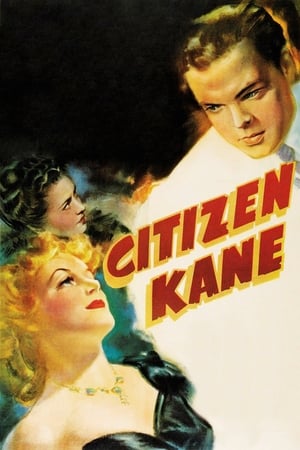
Citizen Kane
_**Not the greatest film of all time, but has its points of interest**_ After the death of an American newspaper tycoon with political aspirations (Orson Welles), his relatives and associates are interviewed with one reporter trying to figure out the meaning of his last word, “Rosebud.” "Citizen Kane" (1941) was Welles’ first feature film, which he co-wrote & directed when he was only 25 with a cast of theretofore unknowns (e.g. Joseph Cotton). It’s regarded as “the greatest movie ever made” by many respectable people and was, for instance, Roger Ebert’s favorite film. Charles Foster Kane and his magnificent homestead Xanadu were inspired by media barons like William Randolph Hearst and his never-completed Hearst Castle. The concept naturally brings to mind Elvis and Graceland, Michael Jackson and Neverland, and Donald Trump and Trump Tower (or whatever). On a filmmaking level there’s a lot to appreciate, including techniques that were fresh at the time of its release, such as unusual camera angles, lens distortion and the creative use of flashbacks. Up to that point in film history, for instance, ceilings were never shown because that’s where the mics were located, but Welles included myriad scenes from low angles with the ceiling obvious in the background. Then there are the interesting interpretations, including the two main ones, which seemingly contradict: The enigma view suggests that the nature of a person is ultimately a mystery based on numerous subjective truths of different people’s perspectives whereas the rosebud interpretation proposes that a person’s life can ultimately be figured out based on a key clue. In Kane’s case, the clue is linked to lost innocence, the comfort of childhood, a mother’s love and the lack of responsibilities thereof. As far as entertainment goes, the flick starts with vigor and features some highlights (e.g. the lively dancing sequence, Kane’s political ambitions and the hollow halls of Xanadu) and human interest (e.g. Kane’s relationship with the amateur opera singer), but I found it unengaging too often. I simply didn’t find Kane a fascinating enough character and therefore didn’t ‘get’ the obsession with interpreting his life. Still, I wouldn't call this "Citizen Suck." For greatest movies ever made I’ll go with flicks like “Apocalypse Now,” “Runaway Train,” “Raiders of the Lost Ark,” “Dead Poets Society,” “The Mothman Prophecies,” “Watchmen,” “The Green Mile,” “Star Trek IV: The Voyage Home,” “Dances with Wolves,” “The Horse Whisperer,” “Lucy,” “Troy,” “One-Eyed Jacks,” “Mutiny on the Bounty” (1962), “Tarzan and His Mate” and “One Flew Over the Cuckoo’s Nest.” The film runs 1 hour, 59 minutes, and was shot in SoCal and New York. GRADE: B-/C+
